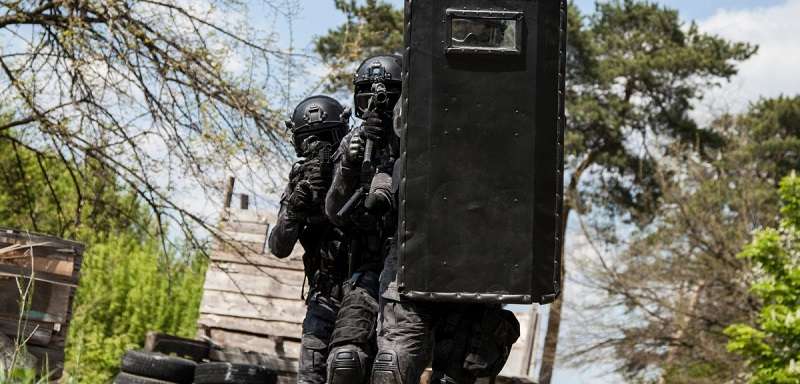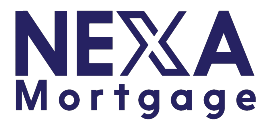VA Loans

VA LOAN
Usually, one of the first questions that I get is “Am I Eligible for a VA Home Loan?"
Just because you have served in the military or were married to a Veteran does not necessarily mean that you are eligible for a VA Home Mortgage. There are several requirements in order to be eligible for a VA Home Loan.The requirements are a bit more restrictive if you served during Peacetime.
There are also others who may qualify such as a POW that was held for 90 days or more, or a surviving spouse of a deceased military member. If you are a surviving spouse and have not remarried, and if the military member died as a result of a service-related injury, you might be eligible for the VA Home Loan Program. If you meet any of these criteria, a VA Home Mortgage might be the right choice for you.
If you have further questions, you can get prompt answers directly by calling me, your VA Loan Professional, at 917-861-2271.
There are several reasons that someone might want to add someone to their VA Home Loan, most often because they don’t quite qualify for that home that they want or need, and want to use someone else’s additional income to help qualify. Keep in mind that whenever you add someone to your Home Loan you also add their debt, and credit score, to the equation.
You can always add your spouse to the loan, military member, or not. and their income can be considered to help you qualify, as long as they occupy the home with you.
The second situation concerns two members of the military. The answer is the same regardless of whether you are married or not. If you want to purchase a home with another military member, this is allowed, but your entitlements will be equally divided.
The last situation can be a bit more difficult. When you have an unrelated person that you want to add to the VA Home Loan that is not in the military and does not have VA Eligibility, technically the VA will allow this but they will only guaranty the Veteran’s interest in the property. Most Lenders consider this “Partial-Guaranty” type of loan to be too risky. There are other loan types that you might also qualify for in this situation such as an FHA Home Loan.
If you have further questions, you can get prompt answers directly by calling me, your V.A. Loan Professional, at 917-861-2271.
First of all, we are talking about the surviving spouse, not children. The Veteran must have died because of a service-related disability or must have died while in service. Also, the surviving spouse must not have remarried in order to be eligible for the VA Home Loan. The spouse may also be eligible if her husband is Missing in Action or a Prisoner of War.
If you have further questions, you can get prompt answers directly by calling me, your V.A. Loan Professional, at 917-861-2271.
There are certain VA guidelines that a home must meet in order to qualify under the VA Home Loan program. Most previously owned homes or new construction homes will qualify. For previously owned homes, the home must be in a livable condition. The VA appraiser will comment to this on the appraisal that is ordered through the VA.
Other properties such as condo’s, townhomes, and homes in Planned Unit Developments (otherwise known as PUD’s) can at times be a bit more difficult to finance with a VA Home Loan. The builder must be a VA approved builder. There is a master list of subdivisions, condominiums, townhomes, and approved builders, that lenders have access to. If your home is not on the list, you can submit paperwork to the VA to see if the home will qualify.
If you have further questions, you can get prompt answers directly by calling me, your V.A. Loan Professional, at 917-861-2271.
First of all, modular homes qualify the same as a “stick-built” normal home. Both mobile homes and Modular “on-frame” homes are treated as the same. If your home still has a steel frame or “I-Beam” type support, regardless of whether it was rolled into place or set with a crane and completed, it is considered to be a manufactured home. Some manufactured homes are financeable with requirements.
They do need to be a double-wide or larger with the wheels removed, and the home must be permanently affixed to the property with a permanent foundation. The home must also have been listed permanently with the property as real estate. I must mention here again that although the VA will allow these types of homes, all Lenders have what we call “overlay restrictions” which adds their requirements or restrictions in addition to the VA which makes it all the more important to consult me with your situation and to get updates to the most recent changes to lender requirements.
If you have further questions, you can get prompt answers directly by calling me, your V.A. Loan Professional, at 917-861-2271.
QUALIFYING FOR A VA LOAN
You must fully qualify for a VA Home Loan just as you would an FHA Home Loan or a Conventional Home Loan.
The criteria or guidelines are established by the VA and the current maximum “standard” guideline is that your total debt including your total new home payment and all installments and revolving debt cannot exceed 41% of your gross income.
There are other things to consider such as residual income and credit score. Residual income is the amount of available monthly income remaining after all of your anticipated bills are paid. A good residual income can allow for variations in other guidelines such as the maximum Debt to Income (DTI) ratios.
If you have further questions, you can get prompt answers directly by calling me, your V.A. Loan Professional, at 917-861-2271.
Although your credit score will not affect the rate on a VA Home Loan as much as it does and Conventional Home Loan, there are minimum credit score guidelines that Lenders, or “investors”, have in place in addition to the VA guidelines.
The credit score is usually indicative of other issues that might disqualify you from a VA Home Loan, such as too much installment or revolving debt. Installment debt would be debt for a fixed time such as a car loan. Revolving debt is debt such as credit cards that can be used again and again.
The minimum credit score guideline today is roughly 620 but this, as well as other, guidelines, can change at any time and often do. Your VA Home Loan Professional can help you with this as well.
If you have further questions, you can get prompt answers directly by calling me, your V.A. Loan Professional, at 917-861-2271.
The answer is “absolutely”. One of the greatest advantages of a VA Home Loan is that you can have a 100% Home Loan without Private Mortgage Insurance (PMI) and without paying a higher rate on the loan for the high Loan To Value (LTV).
Additionally, the Up Front VA Funding Fee can be financed into the loan up and above the purchase price of the home. This results in a lower payment that other types of home loans and helps you qualify you for a larger home.
Also, if you have a VA service-related disability of 10% or more the VA Up Front Funding Fee is waived. When you work with the right VA Home Loan Specialist it’s very possible to get into your home with no money out of pocket.
If you have further questions, you can get prompt answers directly by calling me, your V.A. Loan Professional, at 917-861-2271.
This can be a point of confusion to borrowers, as well as some Loan Officers, and is why you need to choose someone who specializes in VA Home Loans and stays up to speed on current guidelines.
Although the Veteran’s Benefits Administration establishes the basic guidelines for the VA Loan Guaranty Program, they don’t really lend the money. Lenders or “investors” are the ones that make the actual loans, and the VA guarantees the top 25% of the loan with your VA Entitlement amount. This reduces the risk to investors.
The institutions that lend the money have their own guidelines that differ from the VA guidelines called “Overlays” which may be more restrictive than the VA guidelines. Because the Lenders are actually the ones lending the money for the VA Home Loan, the Golden Rule applies… "it’s their gold…..their rules”. This is another reason that it’s critical to get “Pre-Qualified” or even “Pre-Approved” with a VA Lender as early as possible in the process.
If you have further questions, you can get prompt answers directly by calling me, your V.A. Loan Professional, at 917-861-2271.

VA ENTITLEMENT
Entitlement is the dollar amount that the VA guarantees on a VA Home Loan. This can be confusing because the VA has a “Basic” Entitlement and a “Bonus” Entitlement.
Although you may obtain a VA Home Loan, the VA does not lend money. Lenders lend the money but the VA guarantees the riskiest top 25% of your loan. This reduces the risk to the lenders and usually results in a slightly better rate than a conforming non-VA loan.
If you know the amount of your existing entitlement then you can multiply this by four and arrive at the maximum home price that the VA will guarantee on a 100% loan. Keep in mind that you must still credit qualify for the total payment of your home which may restrict you to a lower home price than your entitlement would allow.
If you have never used your entitlement, or have your entitlement restored, you will have a Basic Entitlement of $36,000 and a Bonus Entitlement of $68,250. You will notice that together these amounts total $104,250 and represent a 25% VA guarantee on a conforming loan size of $417,000. There are areas where the conforming loan limits are higher due to the high cost of living. In these areas, bonus entitlement is increased to allow for larger 100% VA Loans. Most VA loan professionals can tell you what the VA loan limit is for your county.
If you have further questions, you can get prompt answers directly by calling me, your V.A. Loan Professional, at 917-861-2271.
Eligible VA borrowers can use their VA Entitlement as many times as they wish as long as the VA Entitlement has been restored.
The upfront VA Funding Fee is slightly higher than on initial use, but it can be used repeatedly.
There are several ways that your VA Entitlement can be restored:
- The simplest way is to sell the home and pay off the VA Home Loan in full
- Another way is for a buyer to assume your VA Home Loan and use their VA Entitlement, which restores your VA Entitlement
- The last way is for you to pay the loan off in full
There is a requirement that the Veteran must no longer own the home, even if the loan has been paid in full, but there is a one time only provided to allow you to restore this VA Entitlement. It is not automatic and the Veteran must apply for the restoration of VA Entitlement using the VA form 26-1880.
If you have further questions, you can get prompt answers directly by calling me, your V.A. Loan Professional, at 917-861-2271.
This is a common question and many have a misconception on this. It is possible for The Veteran to have more than one VA Loan at the same time.
First, VA Home Loans can only be used to purchase a Primary Residence. But, there is no requirement to sell or divest oneself of this property if you subsequently move or are transferred. This is also where Basic Entitlement and Bonus Entitlement come into play.
On the initial loan, the basic entitlement would have been used in part or in full. If the Bonus Entitlement was not used initially, it could be used to purchase another property while keeping the previous loan and property intact.Your VA Bonus Entitlement of $68,250 could be used to purchase another property up to $273,000 at 100% financing.
That being said, there is a way to purchase a more expensive home using this Bonus Entitlement if you have the capability to put some money down. This is a simple way to put it, and it can be complicated, so it’s very important to consult a VA Home Loan professional as early as possible and to obtain your Certificate of Eligibility in order to determine how much VA Entitlement you have remaining.
If you have further questions, you can get prompt answers directly by calling me, your V.A. Loan Professional, at 917-861-2271.
Often a soldier receives orders to move and is either upside down or is having extreme difficulty selling his home. Sometimes (always) this quick move is stressful and the soldier just doesn’t have the time to sell his home at market value, yet needs to purchase another home at his destination quickly.
If you have enough VA Entitlement remaining you can use this VA Entitlement to purchase the new home. It’s important to remember that you will still be held responsible for making the payments on both VA Home Loans until the other home is sold.
Due to the current real estate declining market that all areas of the country have experienced in the last several years, the Government passed a bill in 2009 that allows for some limited relief and assistance for Soldiers that are upside down on their mortgages and suffer a loss on their properties when reassigned and forced to sell, as a direct result of their duties.
If you have further questions, you can get prompt answers directly by calling me, your V.A. Loan Professional, at 917-861-2271.
VA LOAN FEES AND CHARGES
VA loans, as with all loans, require a lot of fees to be collected and the process can be confusing. It is important to get a formal estimate from a Mortgage Lender so that you have a good estimate as to what to expect, and what you may need to bring to closing. If you have a good Mortgage Lender and Realtor involved they should work together to get the seller to pay most or all of your closing costs and even prepaid items.
- The VA Funding Fee is always charged to the Veteran unless you have at least a 10% service-related disability, and the fee can vary for active duty, reserve, or guard.
- The fee also is more for any loan subsequent to the initial use of your eligibility. It can be as high as 3.3% but it can be paid by the veteran, the seller, or financed into the loan up and above the purchase price.
- The VA also limits what lenders can charge the veteran and the total fees are usually less than a comparable conventional loan. Other fees that can be expected include an Appraisal Fee, a Credit Report Fee, an Origination Fee, a Discount Fee to lower your rate below the prevailing rate, a Title Search Fee, a Government Recording Fee, a Flood Zone Certification, and Title Insurance.
- Other items would include prepaid interest collected, your first years Homeowners Insurance, a Survey Fee, and for your new escrow account, several months of prorated property taxes and homeowner’s insurance. As you can imagine, these can really add up which is why it’s again very important to get me, your VA Lender. involved prior to your home search. The seller is allowed to pay up to 4% of the purchase price towards all of your costs and this should be included in any offer to purchase.
- For a VA loan to VA loan refinance the VA Funding Fee is still required, but is much lower, and currently at .5%. This is referred to a VA Interest Rate Reduction Loan or “IRRRL”. These often do not require an appraisal or income qualification at all saving you hundreds of dollars. For those refinances where you are refinancing a non-VA loan to a VA loan the normal VA Funding Fee would apply.
If you have further questions, you can get prompt answers directly by calling me, your V.A. Loan Professional, at 917-861-2271 .

VA HOME LOAN LIMITS
The VA Entitlement is designed to guarantee the top 25% of the largest Conforming Loan size of $417,000.
Your Basic Entitlement of $36,000 plus your Bonus Entitlement of $68,250 adds up to $104,250. This total Entitlement will guarantee the top 25% of $417,0000. This Conforming Home Loan limit is higher in some areas of the country and in these areas you can have additional Bonus Entitlement that would allow you to obtain 100% VA Home Loan financing on larger loan amounts. In most areas of the country, the conforming loan limit is $417,000 and the total VA Entitlement of $104,250 will apply.
You can obtain a larger VA Home Loans but this will require you to put 25% down for the amount of the loan that is not guaranteed by your VA Entitlement. For instance, if you want to purchase a $500,000 home in a county where the Conforming Home Loan limit is $417,000 you would need to put down 25% of the amount over the $417,000 limit. In this example, you would need to put down 25% of $83,000 or $20,750. Additionally, you must also fully qualify for the loan payment regardless of what the maximum loan amount is that the VA will allow.
If you have further questions, you can get prompt answers directly by calling me, your V.A. Loan Professional, at 917-861-2271.
On a purchase, you can finance up to 100% of the lower of the purchase price or the appraised value.
This is why you will have in your purchase contract an escape clause that invalidated the purchase contract if the appraised value comes in lower than the agreed to purchase price. This can and often does happen, and usually results in a renegotiated purchase price. There is no provision on a VA loan to finance in desired improvements above the appraised value of the home.
If the appraised value comes in higher than the purchase price you may then be able to obtain a second mortgage or Home Equity Line Of Credit (HELOC) after closing and use this for improvements.
VA guidelines do allow a borrower to refinance up to 100% of the home’s appraised value, as determined by an appraisal of the home’s current value, but normal additional Lender guidelines would restrict this type of loan to a 90% Loan To Value (LTV).
Note: Applications involving other than honorable discharges will usually require further development by VA. This is necessary to determine if the service was under other than dishonorable conditions.
Wartime– Service During: You must have at least 90 days on active duty and been discharged under other than dishonorable conditions. If you served less than 90 days, you may be eligible if discharged for a service connected disability.
Peacetime– Service during periods: You must have served at least 181 days of continuous active duty and been discharged under other than dishonorable conditions. If you served less than 181 days, you may be eligible if discharged for a service-connected disability.
Service after 9/7/1980 (enlisted) or 10/16/1981 (officer)
If you were separated from service which began after these dates, you must have: Gulf War – Service during period 8/2/1990 to date yet to be determined
If you served on active duty during the Gulf War, you must have: Active Duty Service Personnel
If you are now on regular duty (not active duty for training), you are eligible after having served 181 days (90 days during the Gulf War) unless discharged or separated from a previous qualifying period of active duty service.
Selected Reserves or National Guard
If you are not otherwise eligible and you have completed a total of 6 years in the Selected Reserves or National Guard (member of an active unit, attended required weekend drills and 2-week active duty for training) and Individuals who completed less than 6 years may be eligible if discharged for a service-connected disability.
You May also be determined eligible if you: Note: Also, a surviving spouse who remarries on or after attaining age 57, and on or after December 16, 2003, may be eligible for the home loan benefit. However, a surviving spouse who remarried before December 16, 2003, and on or after attaining age 57, must apply no later than December 15, 2004, to establish home loan eligibility. VA must deny applications from surviving spouses who remarried before December 6, 2003 that are received after December 15, 2004.
Eligibility may also be established for: today to see if you may be eligible for a VA loan!
VA Loan:
- Designed to offer long-term financing to American veterans, VA mortgage loans are issued by federally qualified lenders and are guaranteed by the U.S. Veterans Administration. The VA determines eligibility and issues a certificate to qualifying applicants to submit to their mortgage lender of choice. It is generally easier to qualify for a VA loan than for conventional loans.
Here's how it works:- 100% financing without private mortgage insurance or 20% second mortgage.
- A VA funding fee of 0 to 3.3% (this fee may be financed) of the loan amount is paid to the VA.
- When purchasing a home, veterans may borrow up to 100% of the sales price or reasonable value of the home, whichever is less.
- When refinancing a home, veterans may borrow up to 90% of reasonable value in order to refinance where state law allows.
ASSUMING A VA LOAN
One great feature of a VA loan is that any VA qualified buyer can assume your loan at your rate and payment. This can be a great selling feature if rates have risen since you last financed your home, helping you to get the most from your home when it’s time to sell.
- Transfer of the home, and loan, to the buyer, can happen in two ways. You can transfer the home with or without your VA entitlement. If the buyer does not have the entitlement amount required then you can allow the buyer to use your existing entitlement that was originally used to purchase the home. If you decide to do this then you will not be able to have that entitlement restored until the seller repays the VA home loan in full.
- The better thing to do would be for the buyer to use their VA Entitlement when they assume the loan. This will allow you to immediately restore your VA Entitlement for another use.
If you have further questions, you can get prompt answers directly by calling me, your V.A. Loan Professional, at 917-861-2271.
The short answer is YES.
When someone assumes a VA mortgage, the original party is removed from the mortgage and relieved from any credit obligation, but if the entitlement of the buyer was not used to replace the entitlement of the seller then there may be issues with entitlement down the road if the buyer does not fully repay the loan.
If you have further questions, you can get prompt answers directly by calling me, your V.A. Loan Professional, at 917-861-2271.


